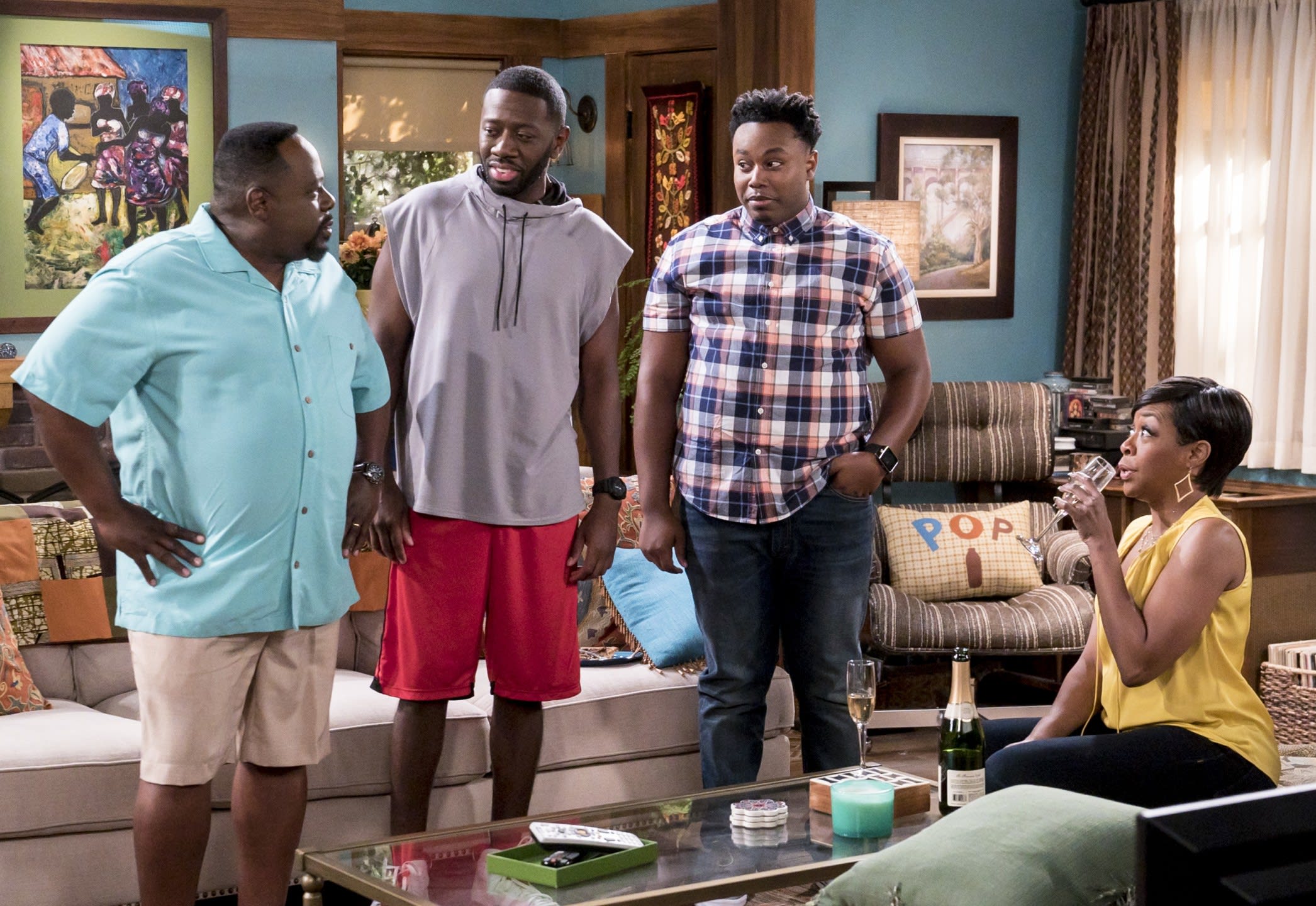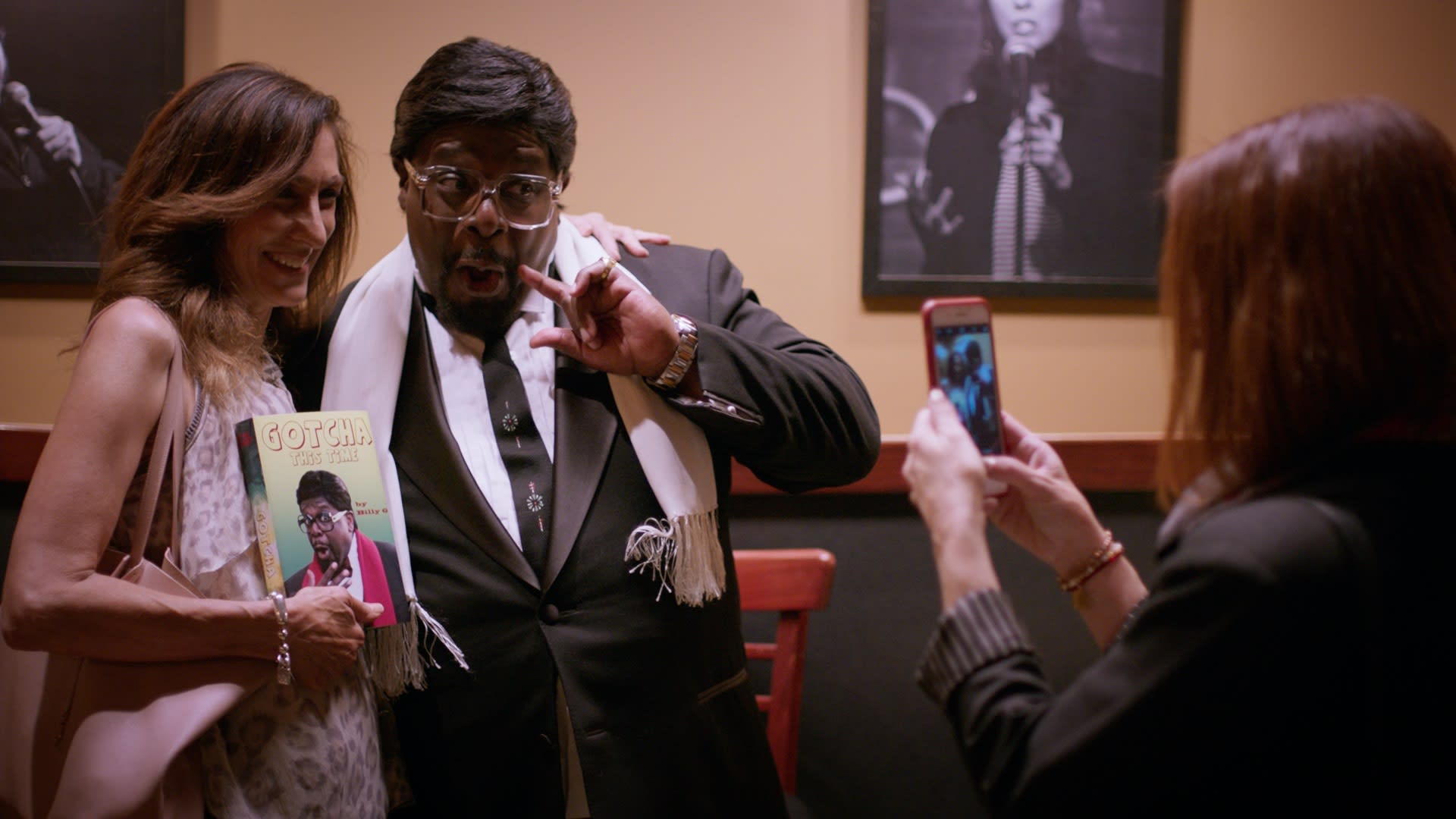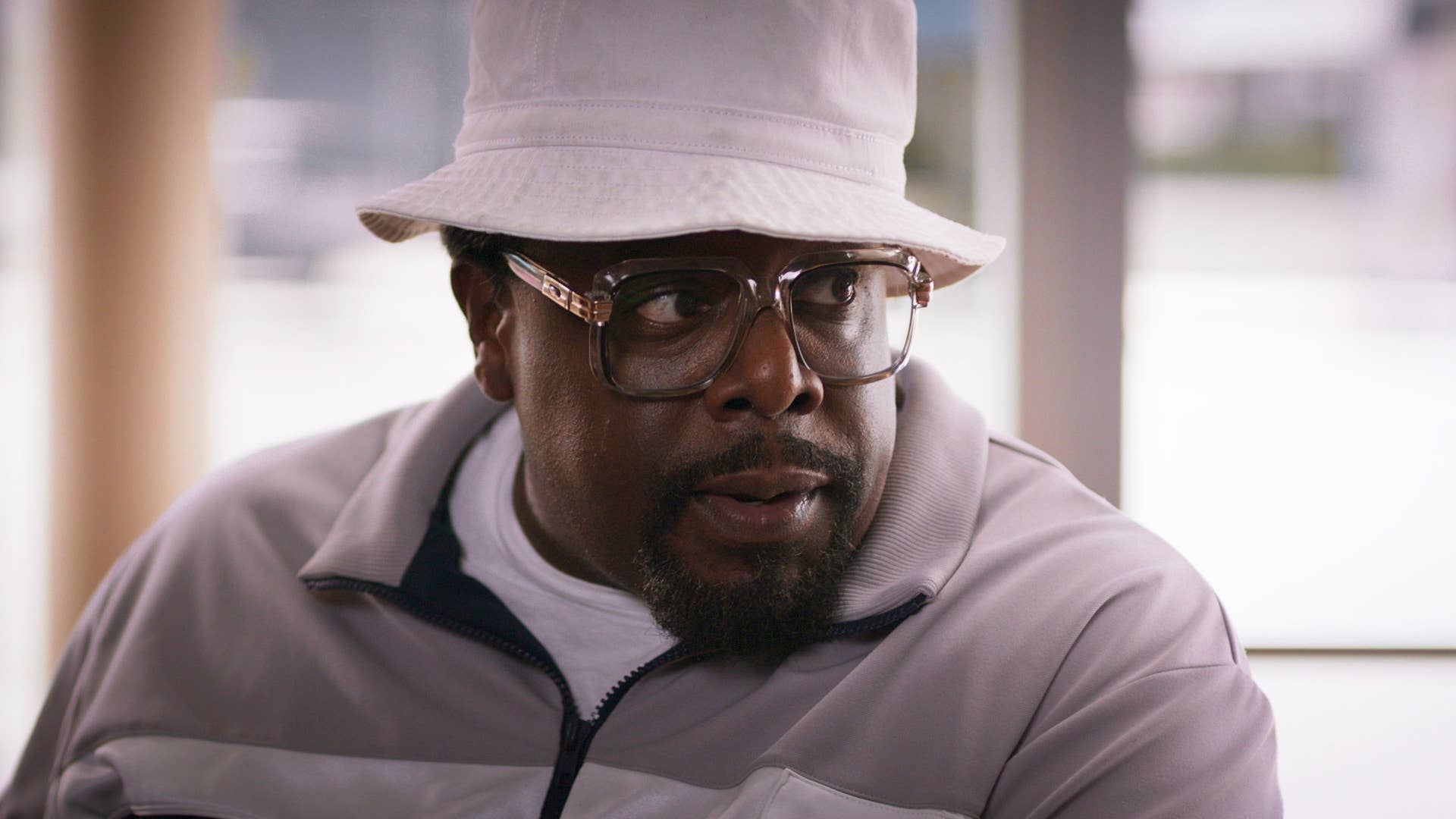
Cedric the Entertainer started off white. Correction: Cedric the Entertainer started off in white comedy clubs. But, the way he had to fit his Black humor into the rigid setup-joke-punchline structure to cajole laugher out of white people bears little resemblance to joking about Black people flying to the moon in space shuttles with Cadillac grills. It was the Black laugh that made him feel at home and it’s the Black laugh he forever fights for.
“When you start to do Black comedy, you can just tell a story and it doesn’t have to have any congruency, it’s just you know you with your people and they get it,” Cedric explained to Complex. “All you have to say is ‘hot comb on a stove!’ And now they’re like ‘Ahh!' Now you’re killing them with the laughs and that was totally different and what I think brought about a lot of confidence and built ourselves to believe in our own brands and our own sense of comedy.”
In his latest film, The Opening Act, Cedric plays Billy G, a legendary comedian and idol of the film’s star Will O’Brien (played by Silicon Valley’s Jimmy O Yang). On-screen, Billy G’s a permed hair, ballroom suit-wearing OG comedian whose tough love mentorship of Will is earned with jokes and not praise. We never see a standup set from Billy G, but during Cedric’s interview with Complex, he makes it clear Billy G’s DNA is as intentional as it is comical. “I thought about the greats like Richard Pryor, Redd Foxx, and Flip Wilson. I thought about how those OGs would be on stage and touring. Dick Gregory wearing suits looking professional. I wanted to show them that’s what comedy is from an old-school guy.”
Cedric could’ve given The Opening Act viewers a crash course in Black comedy history by simply acting out his own. When Def Comedy Jam premiered on HBO on July 1, 1992, it was one of the first times America was regularly exposed to the vastness of Black stand-up comedy. Cedric was on the show by the second episode of its second season. When BET followed suit—debuting its own Black standup comedy show ComicView in September 1992—it put Black comedians directly in the homes of millions of Black families. Cedric was the show’s second-ever host. “Before, you had legendary one-offs like [Bill] Cosby to [Ricard] Pryor to Eddie Murphy; the early rise of the Wayans Brothers. When Def Comedy Jam and ComicView started to come into play, you started to know there were so many funny people out there and people that still exist to this day that got introduced to during that day.”
When Black comedians were touring comedy clubs in the late '90s, Cedric was one of the four Kings of Comedy (which included D.L. Hughley, Steve Harvey, and the late Bernie Mac) to widen the horizon to stadium-size with the "Kings of Comedy Tour," which Spike Lee captured on film in the 2000 stand-up comedy film The Original Kings of Comedy. No one needs to tell you that Cedric is one of the forefathers of modern Black comedy, because the proof is in the reality.
“Kevin Hart definitely was like, ‘I love Kings. I love y’all. I watched y’all and were like, that’s it.’ Kings of Comedy were in the arenas where they played basketball. You were working mostly in a small comedy club. When you see guys at the United Center and American Airlines Arena, you’re like, ‘Yo, I can do that? I can get that big?’ I think that was definitely the inspiration for comedians like Kevin Hart who’s come along and ripped it and taken it to a whole other level.”
Cedric has been a champion of the Black laugh even when the world isn’t watching. He’s currently filming the third season of The Neighborhood, a CBS comedy centered around Cedric’s character Calvin adjusting to a white family moving into his predominantly Black neighborhood. At first, the show was centered around the white family’s view of the Black neighborhood. Cedric passed on the project, initially. And then he passed on it again. And then he passed on it again, which prompted CBS to finally decided to find out why from the man himself. “You can’t move into my neighborhood and tell me what you think. I’m the one that has the point of view,” Cedric explained passionately.
Not only did he fight for the show to be more centered on Blackness, but he also fought for the show to address issues that face Black people. The Season 1 finale, “Welcome to the Conversation,” finds Calvin benefiting from the white privilege his white neighbor doesn't realize they possess. “That ideology is what we think. You come in and think you know what it means to be me and you want to write from that point of view. You don’t know me. You don’t know what I feel. I can tell you how I feel and you’ll learn more. Then, they were like, ‘Yooo. Please do the show.’ That’s the only way we go to the point where we can do the episodes that we do.”

The Black TV comedies of the ‘90s were lionized by the Black laugh during a time when those same comedies were shunned by award shows. Shows like The Steve Harvey Show, The Wayans Bros, and Martin each lasted for at least five seasons and have a combined zero Golden Globe and Emmy nominations. Frasier, Seinfeld, Ally McBeal, Murphy Brown, and Cheers were the only shows to win Primetime Emmy Awards for Outstanding Comedy Series in that decade, with Fraiser winning the award every year from 1994-1998. Cedric, however, did win the NAACP Image Award for Outstanding Supporting Actor in a Comedy Series every year from 1999-2002 for his work on The Steve Harvey Show.
Thankfully, times are changing and the Black laugh is worth gold. In 2017, Donald Glover became the first Black actor to win a Primetime Emmy Award for Outstanding Lead Actor in a Comedy Series in over 30 years for his role as Earn in the first season of Atlanta. At the same awards show, Lena Waithe became the first Black woman to win an Emmy for comedy writing. Just this year Stan Lathan, the Black directing maverick who directed every episode of The Steve Harvey Show, won his first Emmy for directing for his work on Dave Chappelle’s Sticks & Stones comedy special.
“I love Insecure. I love Atlanta. And even the movie Get Out," Cedric shares. "Also, everything Ava [DuVernay] and Lena Waithe do. All of these voices are starting to be really powerful and the story feels way more authentic to what we want to see and how we want to laugh. I think that’s very important for the landscape of television.”
Cedric’s Blackness is cast-iron in how it seasons all his thoughts. The reason he got through an Armenian protest outside of CBS Studio Center where he’s filming the new season of The Neighborhood is Black (“I guess I’m hood enough.”). His memories of his rise are Black (“I came in what I consider a renaissance of Black comedians”). His hopes for the future are Black (“I think Netflix needs to [stream]The Steve Harvey Show”). He may slip in and out of characters, but never his skin.

“I never really wanted to become a caricature of myself. I always loved picking a character and doing it. But, on standup, I get to be freer. On The Neighborhood, I’m this particular character —boisterous and gruff. But, when I’m on stage, I got the hat, the suits — I’m Ced St. Louis,” the veteran comic clarified. “Even though you know me, I’m not that guy, I’m this guy. It’s one of the reasons why I’ll do a smaller role that has the dramatic nuance than always looking for big comedies, jus so I can keep my audience on their toes and let them know that I’m truly experimenting and looking for ways to entertain you in ways you don’t necessarily expect.”
The Opening Act is available in theaters now, as well as on Amazon Prime, Google Play, and Vudu.



